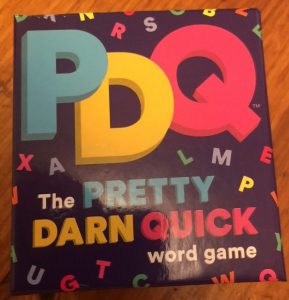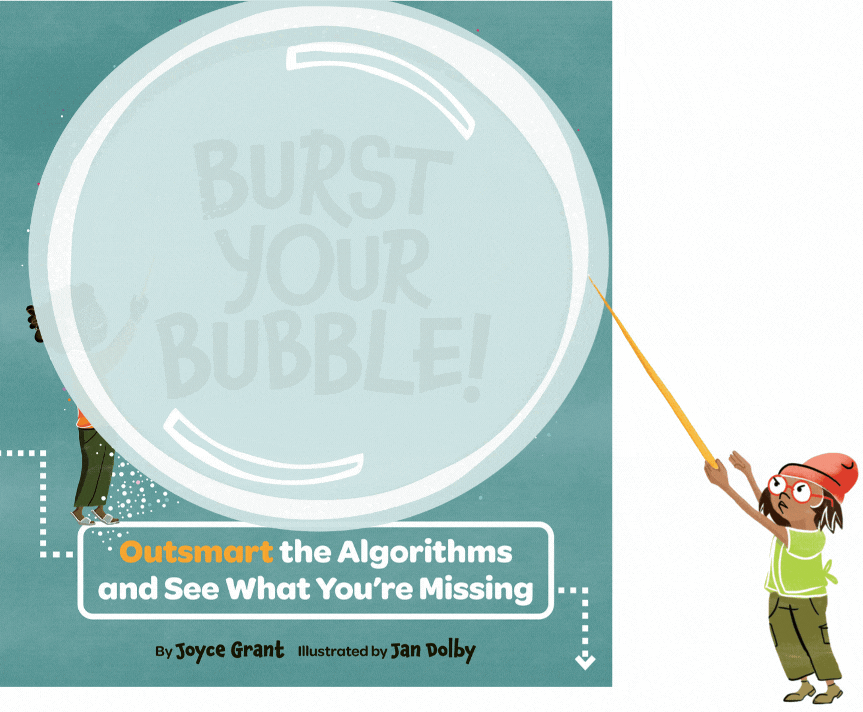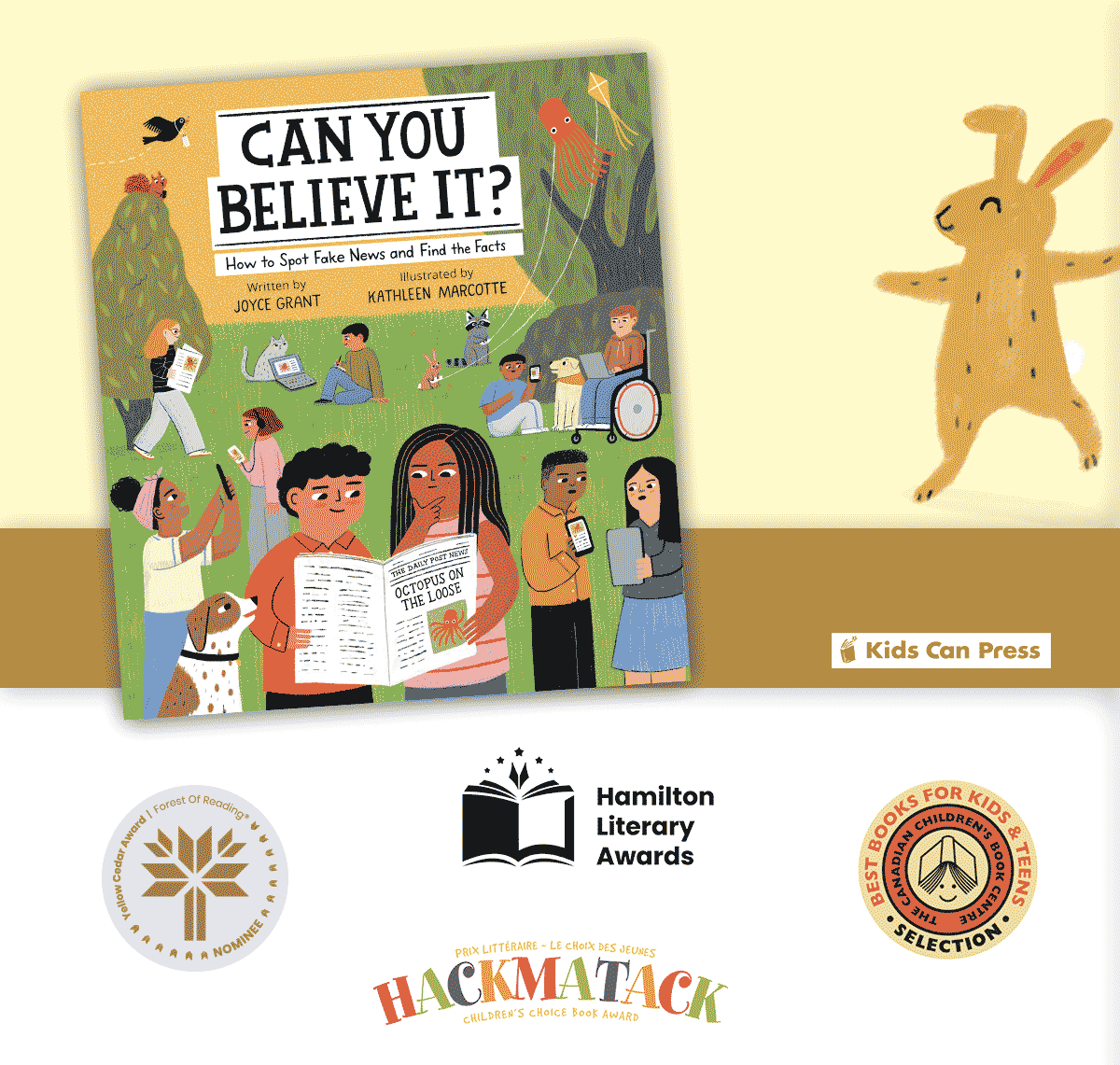The aptly named Pretty Darn Quick word Game, PDQ, is easy to learn and will help to get your kid reading.
It’s really just a bunch of letter cards, but the true genius of the game lies in the fun, fast and flexible rules.
How to play
You deal out three cards, face up. For instance, you might deal S – H – H.
Everyone has to think of a word that uses those three letters in order. For instance, fiSHHook. They don’t have to be together, and usually aren’t. (That’s a pretty tough example, actually. Most combos are a bit easier, but this is one that came up in our game.) The first person to think of a word, says it out loud and they get to keep those three cards. The one with the most cards at the end of the game, wins. If there’s a tie, the person who made the longest word wins.
Maybe no one can think of a word with those three letters in order — for instance, when we dealt Q – F – E. We were stumped. No worries — just push those letters aside and deal three more. Whoever makes a word for the next three letters wins all 6 cards. (Like in War when there’s a tie. The card game War, I mean.)
You can easily see that this game could help your kid’s vocabulary and spelling skills.
And, because there aren’t that many rules, you can get started on it Pretty Darn(ed) Quick.
Variations
One of the things I like best about the game, is that it’s super-flexible. You can change the rules to make it more fair for everyone, no matter what their spelling ability is.
So, here are some variations that make PDQ harder or easier, for older, younger or more word-adept players.
* Adults (or spelling experts) have to make at least five-letter words. Or six-letters words.
* Younger players only have to use two of the cards in their word.
* You can use the cards in reverse order: for instance, S – H – H or H – H – S. Or, any order (H – S – H).
* Proper nouns (names, places) normally aren’t allowed, but if you want to allow them, go ahead.
* You can decide that your word has to start with one of the letters. For instance, HobbyHorSe.
* You can remove some of the harder-to-use letters, like X or Z, from the deck before you deal.
* There’s also a completely different variation, where you and another player try to create increasingly long words. One person makes a word; the next one makes a longer word and so on, until neither of you can think of a longer word. Whoever gets the longest word, wins the cards.
* Solitaire: Deal your own cards, three at a time, and make words. If you get stumped, you lose.
When my friends and I tested the game, we found that whoever deals seems to be at a bit of a disadvantage. Maybe because they’re concentrating on dealing while the other players get to think of words. So maybe leave the dealing to the best wordsmith.
The makers of PDQ, Gamewright, suggest it’s for kids age 10 and up but I’d say even younger, because of the way you can change the rules for beginning spellers.
Here’s what our game-testers said about PDQ:
I like the fact that you’re thinking outside the box. Because you’re looking at the letters left-to-right, but also right-to-left.
-Leslie
I think it would be good for improving your child’s vocabulary and spelling skills.
-Heather
There are very few rules so it’s fast to get started. I like the flexibility of it.
Joyce (me)
And it’s only $9.99.
For more information on PDQ, check out Gamewright’s website.







